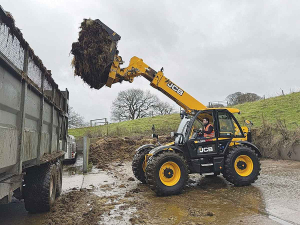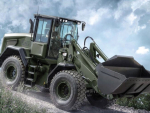Since Donald Trump’s import tariff announcement, the world has been on a wild economic ride.
Indeed, by April 8, US companies alone had lost around US$2.5 trillion in value, only ever seen before in the Great Depression, the Global Financial Crisis and the Covid crisis – none of which were intentionally started. Of course, farm machinery manufacturers will be affected, particularly those with production sites in Europe who ship to the United States.
In response to the increased tariffs announced on April 2, JCB says it will increase the size of its new factory that is currently being built in Texas.
“In the short term, the imposition of tariffs will have a significant impact on our business,” said Graeme Macdonald, chief executive of JCB – the UK-based construction and agricultural equipment manufacturer.
“In the medium term, our planned factory in San Antonio will help to mitigate the impact; we are thankful that the tariff is only 10%, but we hope that the UK Government will conclude negotiations on a trade deal in the coming days and weeks.”
Trump used ‘emergency powers’ to issue a 10% baseline tariff across the board on all imports to the US that took effect on April 5th. Higher tariffs are set for countries with larger trade surpluses with the US, like China at 54% higher and the European Union at 20% higher. O course, the UK left the European Union in 2020.
JCB has announced that its “original plan” to build a 46,500 square metre plant in San Antonio has now been doubled to 93,000 square metres or 22 acres, easily making it the company’s second-largest factory. The $500 million plant is set to begin production in 2026 and employ 1500 people, complementing the company’s North America headquarters in Savannah, Georgia, where it has been for 25 years, employing about 1000 people. That 46,500 square metre facility manufactures skid steer loaders, compact track loaders and Teleskids. It also produces the High Mobility Engineer Excavator and Light Capability Rough Terrain Forklift for the US military and other NATO-aligned forces.
“JCB has been in business for 80 years this year, so we are well accustomed to change,” said JCB chairman Sir Anthony Bamford. “The United States is the largest market for construction equipment in the world, and President Trump has galvanized us into evaluating how we can make even more products in the USA, which has been an important market for JCB since we sold our first machine there in 1964.”
Elsewhere, global ag equipment company CNH Industrial says it has temporarily paused shipments due to uncertainty stemming from the ongoing tariff situation. In a statement, the company is stopping shipments from North America plants and European imports, effective immediately. Officials say the move is temporary until they assess the full impact of tariffs on pricing. The company stated there are no impacts to production and shipment of parts will continue as planned.


















